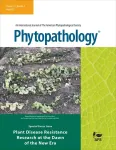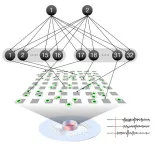(Press-News.org) Affecting hundreds of millions of people, chronic hepatitis B is a widespread global health problem for which there is as yet no cure. In a preclinical study involving the German Center for Infection Research (DZIF), Heidelberg University Hospital, University Medical Center Hamburg-Eppendorf and the US company Vir Biotechnology, the potential of an engineered investigational human monoclonal antibody for the treatment of chronic hepatitis B and hepatitis D has been demonstrated. Based on the results, clinical trials with the monoclonal antibody VIR-3434 are ongoing.
Chronic hepatitis B virus (HBV) infection poses a severe threat to approximately 300 million people worldwide, leading to liver disease and cancer. Approximately four percent of affected persons are chronically coinfected with the hepatitis delta virus (HDV), which exacerbates the gravity of the disease. Current treatments provide only limited cure rates and necessitate indefinite times of therapy.
A team around DZIF-scientists from Heidelberg and Hamburg-Eppendorf supported the preclinical development of VIR-3434, a monoclonal antibody (mAb) discovered by Vir Biotechnology, Inc., that specifically targets the hepatitis B surface antigen (HBsAg) located in the viral envelope. This preclinical study shows how the engineered investigational human monoclonal antibody effectively prevents viral dissemination and reduces the amounts of viral particles and antigen in a mouse model for HBV/HDV coinfection. The comprehensive preclinical study was published recently in Journal of Hepatology.
A targeted approach
The researchers isolated and screened several monoclonal antibodies from memory B cells of HBV-vaccinated individuals that specifically target a conformational epitope (an epitope formed through the three-dimensional folding of the protein bringing distant amino acids together) within the antigenic loop of the small hepatitis B surface antigen. Among a series of more than 30 generated antibodies, which were tested using the most advanced in vitro infection system available and established at Heidelberg University Hospital, one mAb named HBC34 demonstrated potent neutralisation activity against HBV and HDV. The latter is a satellite virus that hijacks HBV surface proteins to infect human hepatocytes. The activity has been shown to be pan-genotypic, providing evidence that HBC34 neutralises all known genotypes of HBV and HDV. Modifications in the structure of the HBC34 mAb for improved potency generated VIR-3434 as a promising mAb candidate for clinical development.
“Aside from the potent neutralisation activity of VIR-3434, we engineered the Fc-portion of the mAb—the tail end of the antibody molecule that is crucial in the immune response—to increase binding to certain immune cells,” explains the co-first and corresponding author of the paper, Dr Florian Lempp, director of virology at Vir. “VIR-3434 has the potential to rapidly eliminate both viral and subviral particles from circulation.”
The researchers then tested VIR-3434’s neutralisation capability in a human liver-chimeric mouse model developed at the University Medical Center Hamburg-Eppendorf (UKE) by the team around Prof. Maura Dandri, a DZIF-scientist on viral hepatitis at UKE and co-author of the paper. The livers of these mice are populated with primary human hepatocytes—the only cell type infected by HBV and HDV in humans. The in vivo studies were essential to demonstrate that the in vitro selected mAb, VIR-3434, was able to block viral dissemination in the liver of both HBV-infected and HBV/HDV-coinfected mice.
“We found that VIR-3434 not only neutralises HBV and HDV infection with high potency in vivo,” explains the co-first author of the study Dr Tassilo Volz, “but it also effectively reduces viraemia—the number of viruses in the bloodstream—and the levels of circulating viral antigens in chronically infected animals.”
"VIR-3434 may provide a potential new option for treating patients with chronic hepatitis B and D, and aid in the prevention of these diseases. The antibody's strong neutralisation properties and promising results in our preclinical infection model may offer hope for patients worldwide," adds Prof. Dandri.
Testing VIR-3434 in the clinic
Based on the findings, clinical studies to ascertain the safety and efficacy of VIR-3434 in human subjects are already underway. The researchers hope that VIR-3434, which is also being studied in combination with other investigational agents, may provide a much-needed therapy to combat chronic hepatitis B and D and the devastating consequences of chronic infection with these viruses.
“The successful isolation and characterisation of VIR-3434 could mark a significant turning point in hepatitis B and D treatment. If further validated through clinical trials, this mAb may offer an important therapeutic option for patients with chronic hepatitis B and D,” emphasises co-author and DZIF-scientist Prof. Stephan Urban of Heidelberg University Hospital.
The described research on VIR-3434, which incorporates Xencor Xtend™ technology (an innovative platform that allows the prolongation of the half-life of antibodies), is the result of a successful collaboration of scientists within the German Center for Infection Research (DZIF) and with the industry partner Vir. The project fits into the DZIF bridging topic “Antibody-based therapies”, which aims to connect experts across DZIF’s different research areas to advance the development, production and clinical testing of therapeutic monoclonal antibodies.
END
A promising investigational therapeutic monoclonal antibody to treat chronic hepatitis B and D infections
2023-08-07
ELSE PRESS RELEASES FROM THIS DATE:
Study: People expect others to mirror their own selfishness, generosity
2023-08-07
CHAMPAIGN, Ill. — New research shows that a person’s own behavior is the primary driver of how they treat others during brief, zero-sum-game competitions. Generous people tend to reward generous behavior and selfish individuals often punish generosity and reward selfishness – even when it costs them personally. The study found that an individual’s own generous or selfish deeds carry more weight than the attitudes and behaviors of others.
The findings are reported in the journal Cognitive Science.
Previous research into this arena of human behavior suggested that social norms are the primary factor guiding a person’s decision-making in competitive scenarios, ...
Gene grants powerful resistance to resurging plant disease
2023-08-07
While wrapping oneself in 100% Egyptian cotton bedsheets is a delightful luxury on a warm summer night, cotton provides much more than breathable, soft fabric. In addition to textiles, the cotton plant is grown for food, fuel, and daily-use consumer products—such as coffee filters, currency, and moisturizers. However, a resurging plant disease called bacterial blight is currently threatening cotton production worldwide.
Bacterial blight is best controlled through natural, genetic resistance. ...
Study reveals successful strategies for removing invasive caimans from Florida Everglades
2023-08-07
The spectacled caiman, a species native to Central and South America, has been established in Florida since the 1970s. The pet trade and crocodilian farming industries, escapes and deliberate releases made it possible for caimans to invade the Florida Everglades.
They pose a threat to native wildlife occupying the same habitat as our native alligators and crocodiles, competing for food and other resources. Meanwhile, they also prey upon birds, small mammals, fish and other reptiles.
In a new University of Florida study, published in the journal Management of Biological Invasions, wildlife ...
Medical schools selected for quality improvement curriculum project
2023-08-07
ROCKVILLE, Md.—Ten medical schools have been selected to participate in a two-year quality improvement project to refine, implement and assess a competency-based obesity education curriculum, The Obesity Society (TOS) announced today. Nationally and internationally, numerous medical organizations have highlighted the need for more medical school training on the science and practice of obesity care. This program is a first step to fill that need.
In addition to having access to 12 curated obesity education ...
National Science Foundation funds NYU Tandon School of Engineering project to safeguard U.S. laws and legal information against cyberattacks and malicious actors
2023-08-07
NYU Tandon School of Engineering researchers will develop new technologies to secure the “digital legal supply chain” — the processes by which official laws and legal information are recorded, stored, updated and distributed electronically — thanks to a $1.2 million grant just awarded by the National Science Foundation (NSF).
Justin Cappos, associate professor in the Computer Science and Engineering department at NYU Tandon, heads up the four-year NSF project, “Defending the Supply Chain of Democracy: Towards a Cryptographically ...
Robust analysis challenges theory that depression and anxiety increase cancer risk
2023-08-07
Depression and anxiety are thought to increase a person’s risk of developing cancer, but research results have been inconclusive. In an analysis of multiple studies from the Netherlands, the United Kingdom, Norway, and Canada, investigators found that depression and anxiety are not linked to higher risks for most types of cancer among this population. The analysis is published by Wiley online in CANCER, a peer-reviewed journal of the American Cancer Society.
Experts have suspected that depression and anxiety may increase cancer risk by affecting a person’s health-related behaviors or by having biological effects on the body that support cancer development. ...
Mathematical theory predicts self-organized learning in real neurons
2023-08-07
An international collaboration between researchers at the RIKEN Center for Brain Science (CBS) in Japan, the University of Tokyo, and University College London has demonstrated that self-organization of neurons as they “learn” follows a mathematical theory called the free energy principle. The principle accurately predicted how real neural networks spontaneously reorganize to distinguish incoming information, as well as how altering neural excitability can disrupt the process. The findings thus have implications for building animal-like artificial intelligences and for understanding cases of impaired learning. The study was published August 7 in Nature Communications.
When we ...
Survey of CVD programs finds more resources needed for heart disease and stroke risk in youth
2023-08-07
Advisory Highlights:
Risk factors for cardiovascular disease are common among preteens and teens, and the need for preventive care to reduce their risk of cardiovascular disease exceeds the supply of health care resources, according to a new American Heart Association science advisory that reports survey results from pediatric cardiovascular health professionals.
Current data show that 39% of U.S. youth ages 12-19 meet criteria for obesity or overweight, 53% have high cholesterol, 18% with prediabetes and 15% have high blood pressure.
The advisory identifies the need for clinical practice guidelines, collaboration ...
A wake-up call for kids’ poor heart health
2023-08-07
‘We’re not talking about primordial prevention. They’re already at risk for having an early heart attack or stroke’
First comprehensive study in 30 years to examine pediatric preventive cardiology in the U.S., Canada
Heart disease is the leading cause of death in U.S. adults
CHICAGO --- Today in the U.S., a child with risk factors for heart disease (high blood pressure, overweight, etc.) can wait close to a year to see a cardiologist because of high demand and limited resources. This is precious time that could be spent managing ...
The trilobites’ guide to surviving environmental change
2023-08-07
Scientists have worked out how one unusual species of trilobite — an ancient, sea-dwelling relative of spiders and lobsters — was able to defend itself against predators and survive a bumpy ride as Earth’s oxygen levels fluctuated.
The seas were filled with trilobites for nearly 300 million years starting in the Cambrian Period, some 520 million years ago. During their time on Earth, which lasted much longer than the dinosaurs, they survived two major episodes of mass extinctions and dominated ocean floor ecosystems.
Their ...




